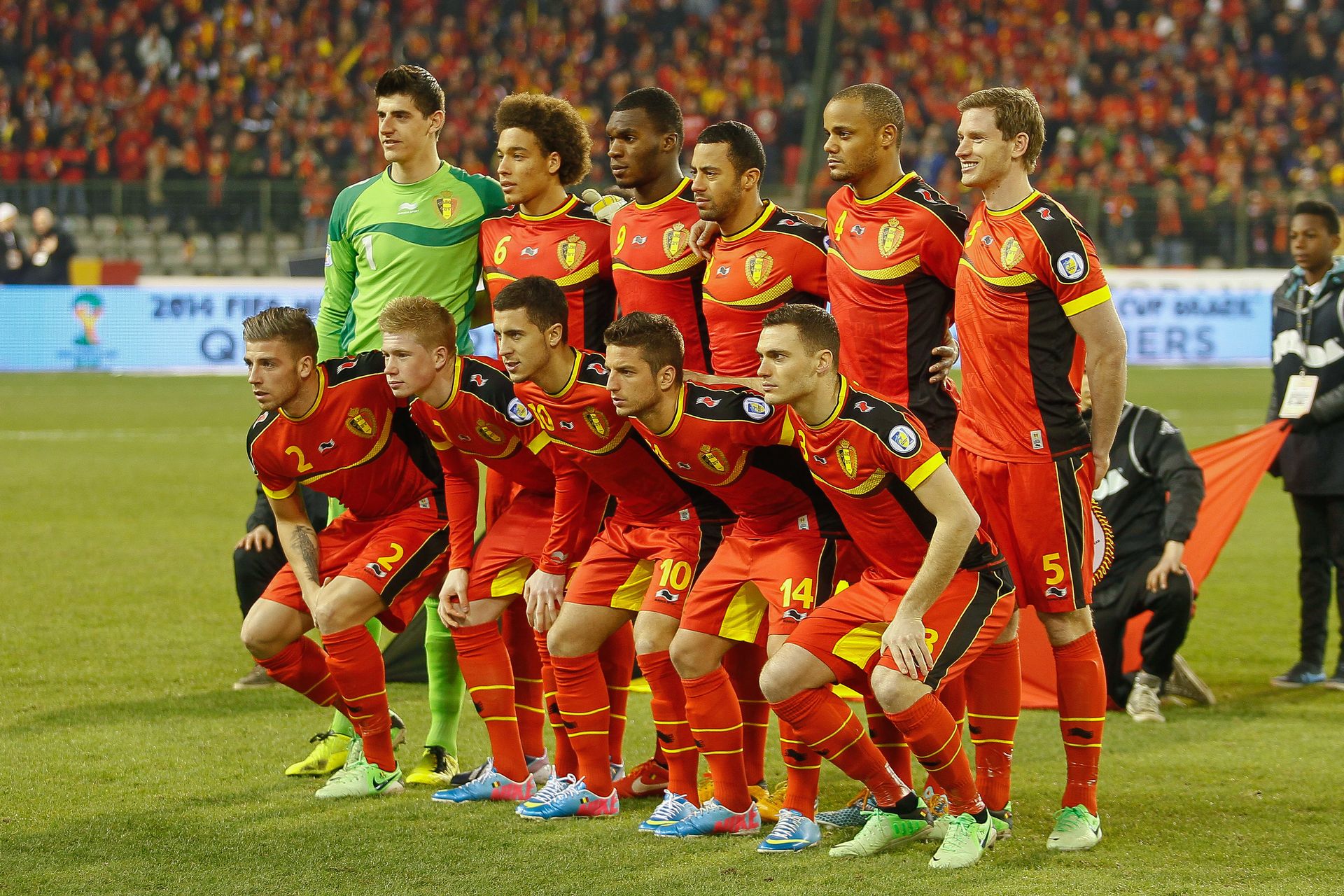FTC Challenges Court Ruling On Microsoft's Activision Blizzard Purchase

Table of Contents
The FTC's Arguments Against the Merger
The FTC argues that the Microsoft Activision Blizzard merger would stifle competition, particularly in the burgeoning cloud gaming market. Their core argument revolves around the belief that Microsoft's acquisition would create an unfair monopoly, limiting consumer choice and potentially leading to higher prices.
-
Microsoft's control over popular franchises like Call of Duty could harm competitors. The FTC fears that Microsoft could make titles like Call of Duty exclusive to its Xbox ecosystem, giving it an insurmountable advantage over competitors like Sony's PlayStation and Nintendo Switch. This would severely limit consumer choice and potentially drive players towards the Xbox ecosystem.
-
The FTC claims the merger would give Microsoft an unfair advantage in the cloud gaming market, potentially limiting consumer choice. Cloud gaming is a rapidly growing sector, and the FTC believes Microsoft could leverage its control over Activision Blizzard's vast game library to dominate this market, potentially locking out smaller competitors and reducing innovation. The potential for Microsoft to bundle Activision Blizzard games exclusively with its cloud gaming service is a key concern.
-
Concerns about the potential for anti-competitive pricing practices are central to the FTC's case. The FTC argues that Microsoft could raise prices for Activision Blizzard games or bundle them with other services in a way that harms consumers. This could reduce competition and limit consumer choice in pricing, especially for popular titles.
The FTC's arguments rely heavily on demonstrating the potential for anti-competitive behavior and the subsequent harm to consumers. They are using established legal precedents to bolster their case, arguing that this merger would fundamentally alter the competitive landscape of the gaming industry and potentially set a dangerous precedent for future tech mergers.
The Court's Initial Ruling and the FTC's Appeal
A US District Court initially dismissed the FTC's lawsuit to block the Microsoft Activision Blizzard merger. The court's reasoning centered on a perceived lack of sufficient evidence to demonstrate that the merger would substantially lessen competition.
-
The court's reasoning behind the dismissal focused on the availability of alternative gaming platforms and the continued competition within the industry. However, the FTC disputes this assessment, arguing that the court underestimated the potential impact of Microsoft's control over key franchises.
-
The FTC's decision to appeal the ruling highlights the agency's determination to prevent the merger. This appeal demonstrates the FTC's belief that the initial ruling was incorrect and that the merger poses a significant threat to competition. The appeal process signifies a prolonged legal battle.
-
This section will discuss the legal basis for the appeal and the procedural steps involved. The FTC will need to present further evidence and legal arguments to convince the appellate court to overturn the lower court's decision. This process is complex and could take considerable time.
The FTC's appeal demonstrates a strong commitment to challenging what it perceives as an anti-competitive merger. The legal strategies of both sides will involve detailed examination of legal precedents and market analyses to support their respective positions within the FTC Microsoft Activision Blizzard legal battle.
Implications for the Gaming Industry and Beyond
The outcome of this FTC Microsoft Activision Blizzard legal battle will have profound consequences for the gaming industry and beyond.
-
Potential impact on game pricing and availability. The merger could lead to increased prices for popular games, especially those exclusive to Microsoft platforms. The availability of certain titles could also be restricted, impacting consumer access.
-
The future of cloud gaming and its competitive landscape. Microsoft's potential dominance in the cloud gaming market could stifle innovation and limit consumer choice. Smaller companies could struggle to compete against Microsoft's vast resources and game library.
-
The broader implications for antitrust enforcement and the regulation of tech giants. The outcome of this case will set a precedent for future mergers and acquisitions in the tech sector, potentially influencing how antitrust regulators approach similar deals.
The potential effects on gamers, game developers, and competing companies are significant. This case has wide-ranging implications for antitrust law and the regulation of mergers and acquisitions in the technology sector, extending far beyond the gaming industry itself.
The Role of Call of Duty in the Debate
The extremely popular Call of Duty franchise is a focal point of the FTC's concerns. The FTC fears that Microsoft could make Call of Duty exclusive to its platforms, severely impacting competition. The game's immense popularity and market share are central to the FTC’s argument regarding the potential anti-competitive effects of the merger. The debate around Call of Duty highlights the strategic importance of key franchises in shaping the FTC Microsoft Activision Blizzard debate.
Future Outlook and Potential Outcomes
Several scenarios could unfold following the FTC's appeal in the FTC Microsoft Activision Blizzard case.
-
Potential for a settlement between Microsoft and the FTC. Microsoft might offer concessions, such as licensing Call of Duty to competitors, to appease the FTC and avoid a prolonged legal battle.
-
The possibility of a reversal of the initial court ruling. The appellate court could side with the FTC, finding that the merger is anti-competitive and ordering its blocking.
-
The long-term implications for Microsoft, Activision Blizzard, and the gaming industry. The outcome will significantly impact the strategic direction of these companies and the overall competitive dynamics within the gaming industry.
Predicting the timeline of the appeal process and its potential resolutions is challenging. However, this legal battle is likely to continue for some time, with significant consequences for the involved parties and the wider gaming industry.
Conclusion
The FTC's challenge to the court ruling on Microsoft's Activision Blizzard purchase marks a significant turning point in the battle over tech giants' influence in the gaming industry. The FTC's arguments, focusing on potential anti-competitive practices and the implications for cloud gaming, are crucial in understanding the complexities of this case. The outcome will likely shape the future of mergers and acquisitions in the tech sector and have a lasting impact on the gaming landscape. Stay informed about developments in this ongoing legal battle and learn more about the FTC Microsoft Activision Blizzard case. Further updates on the FTC Microsoft Activision Blizzard case will be posted as they become available.

Featured Posts
-
 Carlos Alcaraz And Aryna Sabalenka Dominate At The Italian Open
May 26, 2025
Carlos Alcaraz And Aryna Sabalenka Dominate At The Italian Open
May 26, 2025 -
 The Enduring Hope Idf Soldiers Still Missing In Gaza
May 26, 2025
The Enduring Hope Idf Soldiers Still Missing In Gaza
May 26, 2025 -
 F1 Investigation New Details Emerge In Lewis Hamilton Case
May 26, 2025
F1 Investigation New Details Emerge In Lewis Hamilton Case
May 26, 2025 -
 Nouvelle Strategie Rtbf Comment Dynamiser Les Diables Rouges
May 26, 2025
Nouvelle Strategie Rtbf Comment Dynamiser Les Diables Rouges
May 26, 2025 -
 Moto Gp Inggris Fp 1 Marquez Dominan Insiden Motor Mogok
May 26, 2025
Moto Gp Inggris Fp 1 Marquez Dominan Insiden Motor Mogok
May 26, 2025
